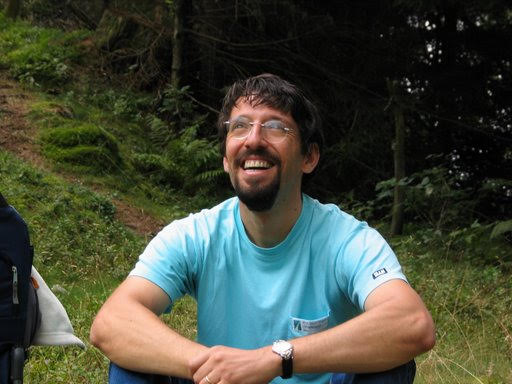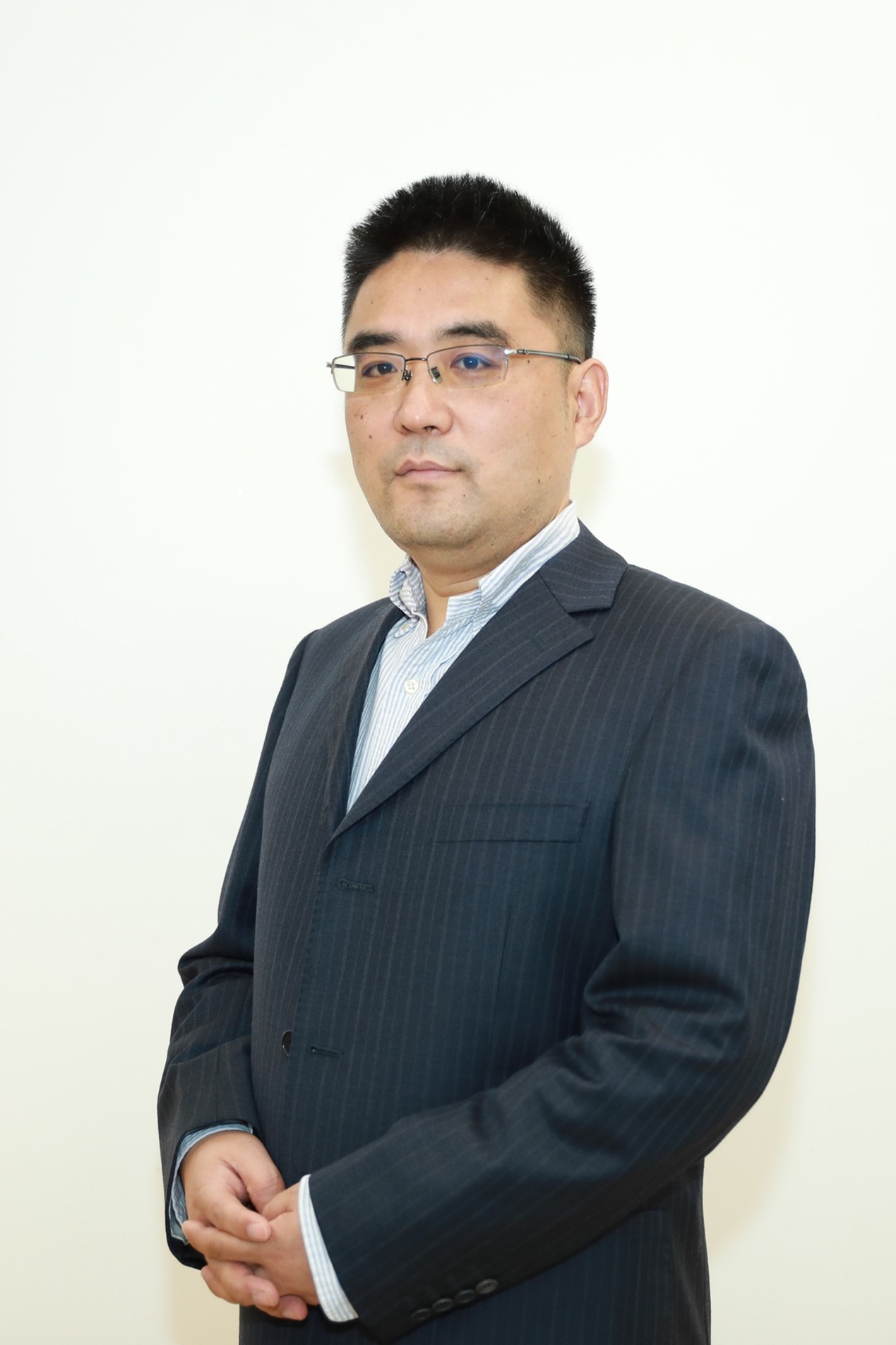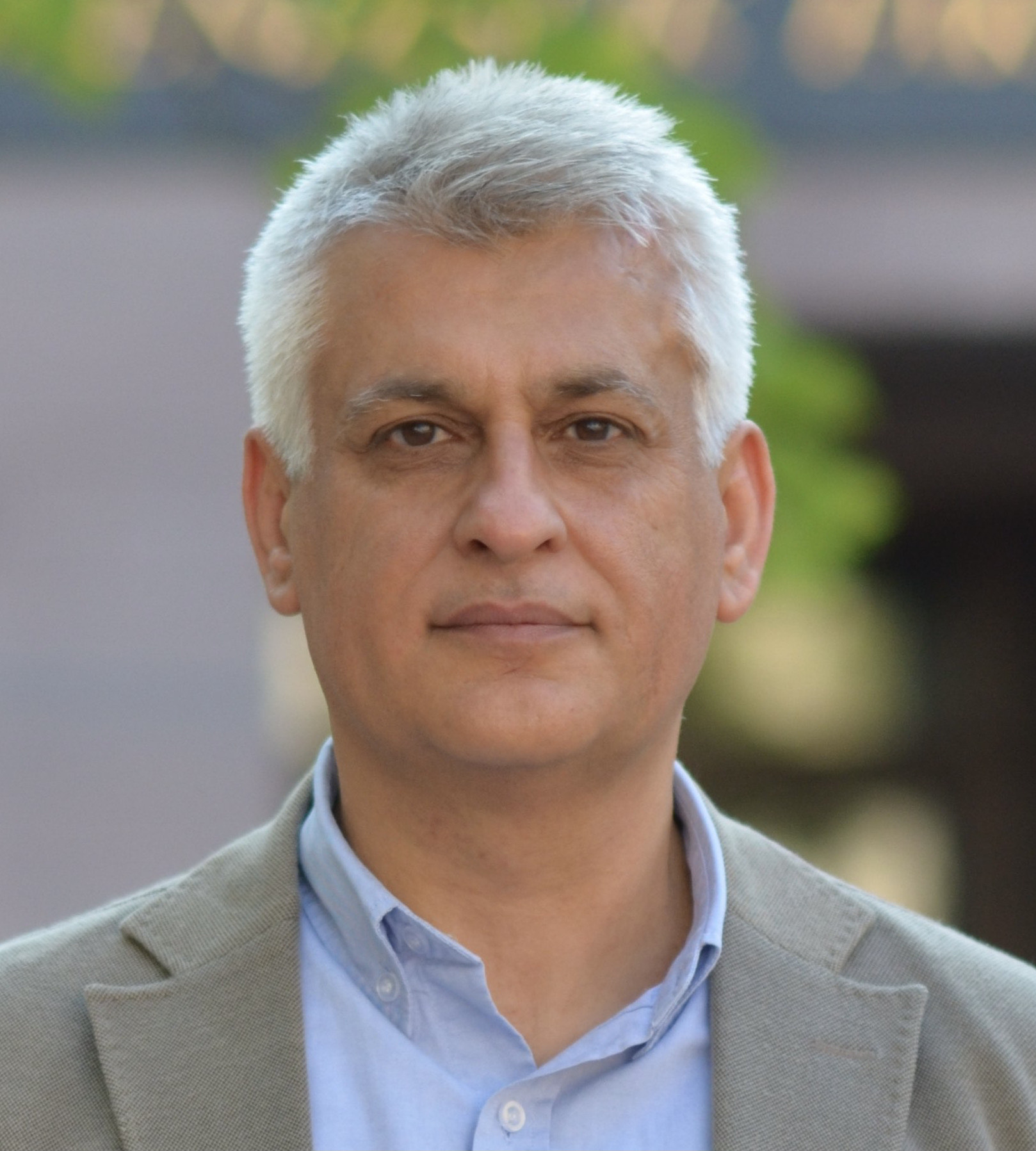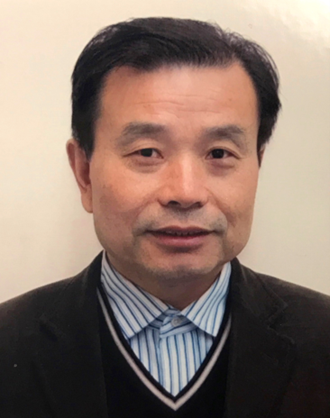
Keynote Speaker: Prof. Guido Sanguinetti
Affiliation: International School of Advanced Studies (SISSA), Trieste, Italy
Guido Sanguinetti is full professor of applied physics at the International School of Advanced Studies in Trieste. Following a DPhil in Mathematics from Oxford, he held research and faculty positions at the University of Sheffield and at the University of Edinburgh, where he still holds an honorary professorship. His research interests focus on the development of machine learning methodologies to model biological dynamics. He was the recipient of an ERC starting Grant, an AIRC individual grant, and several prizes, including the PNAS Cozzarelli Prize in Applied Science and Engineering.
Title: Machine learning methods for single-cell ‘omic data
Abstract: The ability to measure in a high-throughput fashion multiple molecular actors within individual cells represents a unique opportunity to understand the principles underlying cellular dynamics. Nevertheless, single cell data come with multiple statistical challenges: the data is high dimensional, very sparse and highly heterogeneous. Machine learning methodologies are a promising set of tools to extract biological signals from such data, yet substantial methodological work is needed to ensure interpretability and a correct handling of noise. In this talk, I will present some recent work in this line from our group. First, I will discuss the application of Bayesian models to single-cell multi-omic data, showing how they can effectively avoid some of the pitfalls inherent in the data, and extract meaningful information from it. Secondly, I will describe a neural ODE-based method to infer dynamical processes underlying drug response in cancer organoids from single-cell RNA-seq data.
Affiliation: International School of Advanced Studies (SISSA), Trieste, Italy
Guido Sanguinetti is full professor of applied physics at the International School of Advanced Studies in Trieste. Following a DPhil in Mathematics from Oxford, he held research and faculty positions at the University of Sheffield and at the University of Edinburgh, where he still holds an honorary professorship. His research interests focus on the development of machine learning methodologies to model biological dynamics. He was the recipient of an ERC starting Grant, an AIRC individual grant, and several prizes, including the PNAS Cozzarelli Prize in Applied Science and Engineering.
Title: Machine learning methods for single-cell ‘omic data
Abstract: The ability to measure in a high-throughput fashion multiple molecular actors within individual cells represents a unique opportunity to understand the principles underlying cellular dynamics. Nevertheless, single cell data come with multiple statistical challenges: the data is high dimensional, very sparse and highly heterogeneous. Machine learning methodologies are a promising set of tools to extract biological signals from such data, yet substantial methodological work is needed to ensure interpretability and a correct handling of noise. In this talk, I will present some recent work in this line from our group. First, I will discuss the application of Bayesian models to single-cell multi-omic data, showing how they can effectively avoid some of the pitfalls inherent in the data, and extract meaningful information from it. Secondly, I will describe a neural ODE-based method to infer dynamical processes underlying drug response in cancer organoids from single-cell RNA-seq data.

Keynote Speaker: Prof. Xing-Ming Zhao
Affiliation: Institute of Science and Technology for Brain Inspired Intelligence, Fudan University, China
Xing-Ming Zhao received his PhD degree from the University of Science and Technology of China. Currently, he is a distinguished professor at the Institute of Science and Technology for Brain Inspired Intelligence, Fudan University, China, and serves as a Vice Director of the Key Laboratory of Computational Neuroscience and Brain-Inspired Intelligence (Fudan University), Ministry of Education, China. His research interests include data mining and bioinformatics. He has published more than 130 papers in peer-reviewed journals, e.g. Nature and Cell Metabolism. He is the senior member of IEEE, Co-Chair of IEEE SMC Technical Committee on Systems Biology and Vice-Chair of ACM SIGBIO China. He is also the lead guest editor and the editorial member of several journals, e.g. IEEE/ACM TCBB, Neurocomputing, Journal of Theoretical Biology, IET Systems Biology, and so on.
Title:AI driven exploration of Microbiome
Abstract:Metagenomic sequencing is the main way to explore the microbiome, whereas the assembly of metagenome is the key for downstream analysis. In this talk, I’ll present our recent work on identifying misassembled contigs and downstream binning of contigs, and the enterotypes of gut mycobiome across the human lifespan. I’ll also show our work on the association between gut microbiome and disease.
Affiliation: Institute of Science and Technology for Brain Inspired Intelligence, Fudan University, China
Xing-Ming Zhao received his PhD degree from the University of Science and Technology of China. Currently, he is a distinguished professor at the Institute of Science and Technology for Brain Inspired Intelligence, Fudan University, China, and serves as a Vice Director of the Key Laboratory of Computational Neuroscience and Brain-Inspired Intelligence (Fudan University), Ministry of Education, China. His research interests include data mining and bioinformatics. He has published more than 130 papers in peer-reviewed journals, e.g. Nature and Cell Metabolism. He is the senior member of IEEE, Co-Chair of IEEE SMC Technical Committee on Systems Biology and Vice-Chair of ACM SIGBIO China. He is also the lead guest editor and the editorial member of several journals, e.g. IEEE/ACM TCBB, Neurocomputing, Journal of Theoretical Biology, IET Systems Biology, and so on.
Title:AI driven exploration of Microbiome
Abstract:Metagenomic sequencing is the main way to explore the microbiome, whereas the assembly of metagenome is the key for downstream analysis. In this talk, I’ll present our recent work on identifying misassembled contigs and downstream binning of contigs, and the enterotypes of gut mycobiome across the human lifespan. I’ll also show our work on the association between gut microbiome and disease.

Keynote Speaker: Prof. Atilla Gürsoy
Affiliation: College of Engineering, Koç University, Turkey
Attila Gürsoy is a professor of computer science in the Department of Computer Engineering at Koç University. He is also the Dean of Engineering and Director of the Graduate School of Science and Engineering. He received his Ph.D. degree from the University of Illinois at Urbana-Champaign in Computer Science in 1994. He was a postdoctoral research associate at the Theoretical and Computational Biophysics Group at Beckman Institute, UIUC, in NAMD group, a widely used parallel molecular dynamics simulation program. His research is in the area of computational and network biology, and high-performance computing, particularly on predicting protein-protein interactions and genome-scale interactomes. Prof. Gursoy co-directs the COSBI LAB (Computational and Systems Biology Lab) at Koç. He received the Werner-von-Siemens Excellence Award for Science and Innovation for his work on high-performance computing. He is a member of the Science Academy Turkey.
Title: Unveiling complexity of signaling pathway and disease associations: Constructing and Exploring 3D Protein Interaction Networks
Abstract: Protein-protein interactions (PPI) play a pivotal role in orchestrating biological processes, including the intricate web of cellular and signaling pathways. Dysregulation of these interactions can lead to a wide range of diseases, such as cancer. While large-scale studies have greatly expanded our knowledge of PPI networks (the interactome), these networks often lack the detailed atomistic 3D information necessary for a comprehensive understanding of interaction alterations. Recent advances in deep learning improved protein structure prediction significantly; however, modeling PPIs in three dimensions with the same level of detail remains a significant challenge. In this presentation, the work of our research group focusing on the integration of 3D protein structures and genomics to enrich the interactome, with a particular emphasis on protein interfaces will be discussed. Furthermore, we present the potential of these enhanced networks in deciphering signaling cascades, dissecting disease mechanisms, and facilitating drug discovery.
Affiliation: College of Engineering, Koç University, Turkey
Attila Gürsoy is a professor of computer science in the Department of Computer Engineering at Koç University. He is also the Dean of Engineering and Director of the Graduate School of Science and Engineering. He received his Ph.D. degree from the University of Illinois at Urbana-Champaign in Computer Science in 1994. He was a postdoctoral research associate at the Theoretical and Computational Biophysics Group at Beckman Institute, UIUC, in NAMD group, a widely used parallel molecular dynamics simulation program. His research is in the area of computational and network biology, and high-performance computing, particularly on predicting protein-protein interactions and genome-scale interactomes. Prof. Gursoy co-directs the COSBI LAB (Computational and Systems Biology Lab) at Koç. He received the Werner-von-Siemens Excellence Award for Science and Innovation for his work on high-performance computing. He is a member of the Science Academy Turkey.
Title: Unveiling complexity of signaling pathway and disease associations: Constructing and Exploring 3D Protein Interaction Networks
Abstract: Protein-protein interactions (PPI) play a pivotal role in orchestrating biological processes, including the intricate web of cellular and signaling pathways. Dysregulation of these interactions can lead to a wide range of diseases, such as cancer. While large-scale studies have greatly expanded our knowledge of PPI networks (the interactome), these networks often lack the detailed atomistic 3D information necessary for a comprehensive understanding of interaction alterations. Recent advances in deep learning improved protein structure prediction significantly; however, modeling PPIs in three dimensions with the same level of detail remains a significant challenge. In this presentation, the work of our research group focusing on the integration of 3D protein structures and genomics to enrich the interactome, with a particular emphasis on protein interfaces will be discussed. Furthermore, we present the potential of these enhanced networks in deciphering signaling cascades, dissecting disease mechanisms, and facilitating drug discovery.

Keynote Speaker: Dr. Xiao-zhong James Luo
Affiliation: Program Director, Acting Deputy Chief of Advanced Technologies and Surgery Branch / Division of Cardiovascular Sciences / National Heart, Lung, and Blood Institute (NHLBI) / National Institutes of Health (NIH)
Dr. Luo’s background and experience encompass molecular biology, genomics, clinical research, and data sciences. He earned his Ph.D. degree in molecular and cell biology in 1996 from University of Memphis, Tennessee. He conducted research on gene regulation and expression in central nervous system at National Institute of Mental Health (NIMH), NIH. He had conducted clinical trials and bioinformatics software development since 1998. He was trained at Stanford University in a data mining and machine learning program.
While at NHLBI as a Program Director, He has facilitated the generation of high impact results in the genetics and genomics research community through the management of the TOPMed. Under his leadership, the TOPMed IRC has jointly called over 264,382 whole genome sequence (WGS) and generated 959 million genetic variants, plus over 130,826 omics (RNA-seq, methylation, metabolomic and proteomics). The TOPMed Imputation Server has imputed over 156.9 million genomes supporting over 15,028 investigators worldwide. He has represented NHLBI on trans-NIH and federal interagency committees, NIH common fund program and interagency (NSF) program. He has oversaw projects with over $100 million total budget annually.
He served as a major resource in planning, establishing and managing biomedical informatics initiatives and projects at National Institute of Biomedical Imaging and Bioengineering. He had led teams to develop bioinformatics infrastructure, clinical trial system, tools and resources for the National Cancer Institute (NCI), NIH institutes, CDC, and pharmaceutical companies.
Throughout his career, he has won a number of awards. The Rembrand project he led to develop at NCI won 2005 Service to America Medals Award, the highest honor highlighting those who have made significant contributions to our country for America's dedicated federal workforce. In 2015, the Secretary Sylvia Burwell of US Department of Health and Human Services presented him the US Department of Health and Human Services Innovation Awards. Selected by NIH Director, Dr. Francis S. Collins, he receive a 2016 and again 2023 NIH Director's Award. In 2009, he received Excellenc.Gov Award: Best Overall Award Winner. In 2008, selected by trans-NIH Blueprint Directors, he received NIH Blueprint for Neuroscience Research Directors Award for Significant Achievement. He was four-time winner of NHLBI Director's Awards.
Title: The NHLBI Trans-omics for Precision Medicine Program (TOPMed) - Stimulate innovative scientific discovery through multi-Omics and inter-disciplinary approach
Abstract: The goal of the NHLBI Trans-Omics for Precision Medicine (TOPMed) program is to generate scientific knowledge and stimulate discovery by integrating -omics data from diverse populations with molecular, behavioral, imaging, environmental, and clinical data to improve the understanding, prevention and treatment of heart, lung, blood, and sleep disorders and advance precision medicine.
The TOPMed program has generated one of the largest, richest, most diverse biomedical data sets ever built. Currently TOPMed has sequenced over 264,382 whole genome sequence (WGS), plus over 130,826 omics (including RNA-seq, methylation, metabolomic and proteomics). Over 959 million genomic variants have been discovered in TOPMed samples. The samples are deep phenotyped with diverse population representing geographic and racial/ethnic groups. The TOPMed program is still continuously generating more WGS and omics data for discovery research. TOPMed tools, such as Imputation Server and BRAVO Variant Browser that share genomic summary results, have over 10,000 registered users each. For example, TOPMed Imputation Server has 15,028 registered users and over 156.9 million genomes have been imputed. It brings biomedical and data science researchers together leveraging TOPMed data and resources to solve important biomedical and public health challenges that require expertise of both research communities. It is aimed to stimulate scientific innovation and creativity by expanding interdisciplinary knowledge through collaboration.
Affiliation: Program Director, Acting Deputy Chief of Advanced Technologies and Surgery Branch / Division of Cardiovascular Sciences / National Heart, Lung, and Blood Institute (NHLBI) / National Institutes of Health (NIH)
Dr. Luo’s background and experience encompass molecular biology, genomics, clinical research, and data sciences. He earned his Ph.D. degree in molecular and cell biology in 1996 from University of Memphis, Tennessee. He conducted research on gene regulation and expression in central nervous system at National Institute of Mental Health (NIMH), NIH. He had conducted clinical trials and bioinformatics software development since 1998. He was trained at Stanford University in a data mining and machine learning program.
While at NHLBI as a Program Director, He has facilitated the generation of high impact results in the genetics and genomics research community through the management of the TOPMed. Under his leadership, the TOPMed IRC has jointly called over 264,382 whole genome sequence (WGS) and generated 959 million genetic variants, plus over 130,826 omics (RNA-seq, methylation, metabolomic and proteomics). The TOPMed Imputation Server has imputed over 156.9 million genomes supporting over 15,028 investigators worldwide. He has represented NHLBI on trans-NIH and federal interagency committees, NIH common fund program and interagency (NSF) program. He has oversaw projects with over $100 million total budget annually.
He served as a major resource in planning, establishing and managing biomedical informatics initiatives and projects at National Institute of Biomedical Imaging and Bioengineering. He had led teams to develop bioinformatics infrastructure, clinical trial system, tools and resources for the National Cancer Institute (NCI), NIH institutes, CDC, and pharmaceutical companies.
Throughout his career, he has won a number of awards. The Rembrand project he led to develop at NCI won 2005 Service to America Medals Award, the highest honor highlighting those who have made significant contributions to our country for America's dedicated federal workforce. In 2015, the Secretary Sylvia Burwell of US Department of Health and Human Services presented him the US Department of Health and Human Services Innovation Awards. Selected by NIH Director, Dr. Francis S. Collins, he receive a 2016 and again 2023 NIH Director's Award. In 2009, he received Excellenc.Gov Award: Best Overall Award Winner. In 2008, selected by trans-NIH Blueprint Directors, he received NIH Blueprint for Neuroscience Research Directors Award for Significant Achievement. He was four-time winner of NHLBI Director's Awards.
Title: The NHLBI Trans-omics for Precision Medicine Program (TOPMed) - Stimulate innovative scientific discovery through multi-Omics and inter-disciplinary approach
Abstract: The goal of the NHLBI Trans-Omics for Precision Medicine (TOPMed) program is to generate scientific knowledge and stimulate discovery by integrating -omics data from diverse populations with molecular, behavioral, imaging, environmental, and clinical data to improve the understanding, prevention and treatment of heart, lung, blood, and sleep disorders and advance precision medicine.
The TOPMed program has generated one of the largest, richest, most diverse biomedical data sets ever built. Currently TOPMed has sequenced over 264,382 whole genome sequence (WGS), plus over 130,826 omics (including RNA-seq, methylation, metabolomic and proteomics). Over 959 million genomic variants have been discovered in TOPMed samples. The samples are deep phenotyped with diverse population representing geographic and racial/ethnic groups. The TOPMed program is still continuously generating more WGS and omics data for discovery research. TOPMed tools, such as Imputation Server and BRAVO Variant Browser that share genomic summary results, have over 10,000 registered users each. For example, TOPMed Imputation Server has 15,028 registered users and over 156.9 million genomes have been imputed. It brings biomedical and data science researchers together leveraging TOPMed data and resources to solve important biomedical and public health challenges that require expertise of both research communities. It is aimed to stimulate scientific innovation and creativity by expanding interdisciplinary knowledge through collaboration.